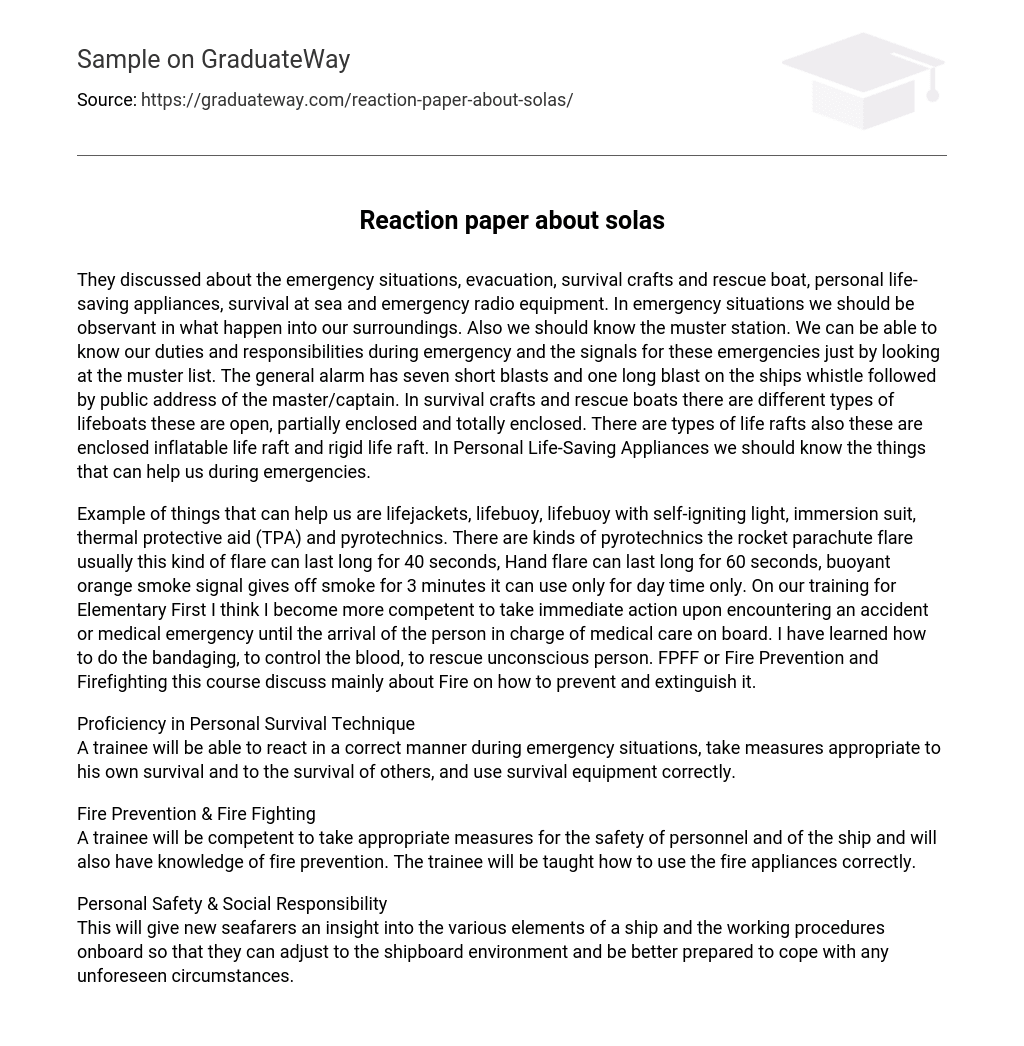The discussion centered on various topics regarding emergency situations, evacuation procedures, survival crafts and rescue boats, personal life-saving appliances, survival techniques at sea, and emergency radio equipment. It is vital to stay vigilant in case of emergencies and become acquainted with the muster station. By consulting the muster list, we can comprehend our roles and responsibilities as well as the signals for different emergencies. The ship’s whistle emits seven short blasts followed by one long blast for the general alarm, accompanied by an announcement from the master or captain. There are three types of lifeboats available: open, partially enclosed, and totally enclosed. Additionally, there are also diverse kinds of life rafts such as enclosed inflatable life rafts and rigid life rafts. Acquainting ourselves with personal life-saving appliances is essential since they can be valuable tools during emergencies.
Examples of items that can assist us include lifejackets, a lifebuoy, a lifebuoy with a self-igniting light, an immersion suit, a thermal protective aid (TPA), and pyrotechnics. Pyrotechnics have different types such as the rocket parachute flare which lasts up to 40 seconds, the hand flare lasting for 60 seconds, and the buoyant orange smoke signal emitting smoke for 3 minutes suitable only for daytime use. During my Elementary First Aid training, I acquired skills in immediate action during accidents or medical emergencies until designated medical personnel arrive on board. Skills learned include bandaging, controlling bleeding, and rescuing unconscious individuals. The FPFF (Fire Prevention and Firefighting) course primarily focuses on fire prevention and extinguishing techniques.
Proficiency in Personal Survival Technique
A trainee will have the ability to respond appropriately during emergencies, take actions that ensure their own survival and the survival of others, and use survival equipment correctly.
Fire Prevention & Fire Fighting
A trainee will be skilled in ensuring the safety of personnel and the ship, as well as possessing knowledge of fire prevention. Additionally, the trainee will receive instruction on the proper usage of fire appliances.
Personal Safety & Social Responsibility
This course will provide new seafarers with knowledge on different aspects of a ship and the operational protocols onboard. This will enable them to adapt to the shipboard setting and be more equipped to handle unexpected situations.





